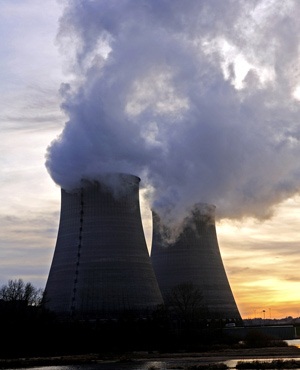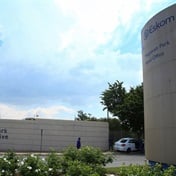
Johannesburg - Two new Russian nuclear agreements signed at the Brics summit last week strengthened Russia’s hand as South Africa prepares to finalise its controversial new nuclear programme at the end of the month.
Russia’s nuclear utility Rosatom and South Africa’s department of energy signed two memorandums of understanding on Wednesday, outlining plans to train nuclear personnel in South Africa and promote nuclear energy use among South Africans.
The latest set of agreements will complicate life for any of the bidders who participated in the vendor parade over the past couple of months.
Rosatom didn’t want to be drawn on whether it was South Africa’s favourite.
“Rosatom, as other participants of the pre-procurement process, took part in the vendor parade. We await the government’s decision in this regard,” a spokesperson for the company told City Press.
“We believe that our unmatched expertise sets us apart.”
South Africa wishes to add at least eight nuclear reactors generating 9 600MW to its grid. The average amount of time it takes to construct a nuclear power station is 10 years.
The government hopes the first reactor will start generating power from 2023, and that the new fleet will be complete by 2029. The cost of the programme is likely to exceed R1trn.
Russian news agency Tass reported that Rosatom promised at the summit that local production in South Africa could account for 40% to 60% of goods needed to build the power stations, helping to create about 30 000 jobs. This could bring South Africa about R198bn at the stage of construction alone, and another R61.9 billion in revenues for the country’s budget.
Rosatom head Sergey Kiriyenko earlier told Tass that he estimated the construction of eight reactors would cost R500 billion and the programme of creating the entire nuclear power infrastructure in South Africa would cost R1.2trn.
A rival vendor described the flood of agreements between South African and Russia as disheartening, but was not willing to give up hope just yet.
Last month, the energy department submitted all five intergovernmental nuclear cooperation agreements to Parliament after Cabinet had discussed the documents. The department also announced it wanted to initiate the tender no later than this month and make a final decision about the chosen vendor early next year.
While the department of energy has not publicly committed South Africa to a government-to-government procurement process, officials inside the department are openly favouring the model.
France, China, the US and South Korea all have intergovernmental agreements with South Africa now, but not one of them is as detailed as the agreement with Russia.
Energy Minister Tina Joemat-Pettersson signed the agreement in Vienna on September 21 last year, after several meetings between President Jacob Zuma and Russia’s President Vladimir Putin.
That agreement comprises quite specific details and clauses that analysts have described as favouring Russia and Rosatom.
It grants Russia a number of regulatory concessions and favourable tax and other financial treatment, and excludes other countries from doing nuclear business with South Africa without Russia’s permission.
The agreement also indemnifies the Russians from any liability arising from nuclear accidents during the reactors’ life. Furthermore, the agreement is binding for 20 years once in force.
This week’s first agreement details how Russia will train specialists for South Africa, including nuclear power plant personnel, engineering and construction personnel, and specialists for the nonenergy sector and nuclear infrastructure market.
“Both parties will strive to realise education programmes for 200 South African candidates at Russian universities and educational organisations,” the energy department said.
Rosatom has already signed a memorandum with North-West University, the only university in South Africa currently training nuclear specialists. The agreement provides for joint programmes, such as cooperation in research, exchange of specialists, joint seminars, cooperation in publication of textbooks and training of specialists.
The second agreement details an information campaign that will see Russia play a central role in popularising nuclear power engineering and technology in South Africa.
Plans include an information centre and several jointly hosted international industry-wide conferences.
Rosatom said the campaign would promote transparency and honesty around nuclear power.
“We are very interested that people know the truth about our work, about our facilities, about radiation and radioactivity,” a spokesperson said.
Ultimately, financing could play a key role in the selection of the vendor, and Rosatom seems willing to fund South Africa’s nuclear programme to a considerable degree to entice the South Africa government to commit to a nuclear deal.
Rosatom is offering South Africa a lucrative “build, own, operate” deal, where Russia would build and run the nuclear power station, and sell the power to South Africa at an agreed price.
But critics have pointed out that the “build, own, operate” model leaves too much power in Russia’s hands. The department itself is unwilling to comment, merely stating that several funding models were being analysed.
Rosatom is also keeping its cards close to its chest, and is unwilling to disclose any of its proposed South African business models.
“We are ready to offer various financial solutions if the South African government invites us to participate,” the company said. “Particular parameters will be specified when the South African government determines terms of reference for the purchase.”
Turkey was the first country that took up Rosatom’s “build, own, operate” model. Rosatom will sell power at a fixed price regardless of inflation, variability of fuel costs, cost overruns during construction or variation in currency exchange rates. The Akkuyu nuclear power plant agreement sees Rosatom training Turkish workers for free, which is similar to the latest South African proposal.
Two years ago, Hungary arranged a R165 billion expansion to a nuclear power plant with Rosatom, funded with a R138 billion loan from Russia, payable over 30 years at below-market rates. Rosatom had also arranged financing for nuclear stations it is building in Belarus and India.
In Finland, Rosatom is a coinvestor, where it holds a 34% share in the country’s new Hanhikivi 1 nuclear power plant




 Publications
Publications
 Partners
Partners








